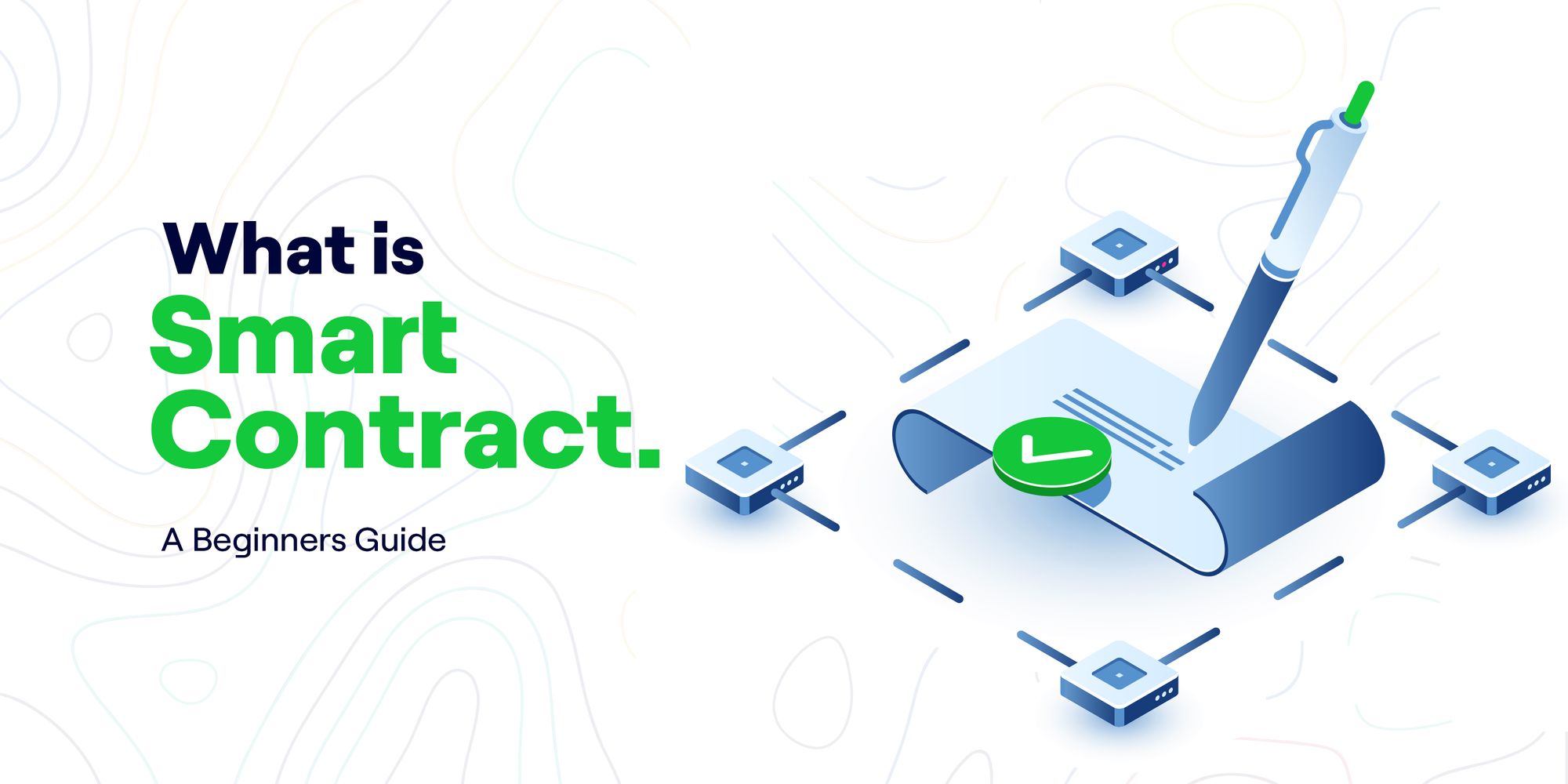
Benefits of Blockchain Technology in Nigeria
Explore the transformative potential of blockchain technology in Nigeria, from enhancing elections and fostering financial inclusion to revolutionizing the educational sector and building a unified database
A survey conducted by Gartner CIO 2019 on respondents of higher education revealed that a 'measly' 2% of higher education respondents have already deployed Blockchain. Another 18% of respondents planned to do so within the next 24 months. However, nearly half of respondents (47%) cited a lack of interest, and that number is up from just 37% in the 2018 survey. Many in the "disinterested" group are taking a wait-and-see approach, considering the extreme hype, immaturity and potential risks of Blockchain.
A lot of inference can be drawn from the survey above, but the one that strikes me the most is; out of a whopping 100%, only 2% have successfully deployed the full use of Blockchain. Blockchain is the most misconstrued term in this digital era. One of the reasons it's so misunderstood is people's continuous aggregation of Blockchain to just cryptocurrency. The computational evolution of the digital space has created the absolute need for a system that can record unalterable events. This is the role Blockchain has come to play in the present society, and it scrapes every industry worldwide.
What Is Blockchain Technology?
Blockchain technology, as known as Distributed Ledger Technology(DLT), is simply a digital system that records any digital transactions in an encrypted and decentralised manner. It exists as a distributed database, which means there is no authority, every participant is a point of control, and they are all equal. It eliminates the need for an intermediary, which reduces costs, and it is economically unviable to hack.
Blockchain is a game changer in every industry. It's being used by micro-economic industries to macro-sized ones, such as digital innovations in the finance industry, transparency and effectiveness in the government sector, and in records maintenance, verifying, tracking and aggregating of information. It's imperative to note that the most significant innovation since the inception of cryptocurrency is Smart Contract, and guess what? It uses blockchain technology to implement it.
Nigeria's government took a monumental approach towards using blockchain technology when it institutionalised the use of Blockchain in Nigeria on May 2. Let's look at some of the applications Blockchain can play in Nigeria.
Benefits of Blockchain Technology in Nigeria
Blockchain Technology in Election:
The last election in Nigeria showed us how far we're still behind in curbing electoral fraud, corruption and violence in the country. There's a pattern of struggle in the general voting system: identity fraud, miscounts and crime among officials. Blockchain can eliminate most of these issues. For example, with our knowledge of smart contracts, where we can set pre-defined rules and regulations, we can quickly achieve the following:
- No voter can vote from a registered digital identity that's not theirs. So each unique ID is to one specific individual. These eliminate the errors that electoral officials go through during voting.
- Every vote is registered on a blockchain network, and the counting is tallied automatically without interference from a third party or dependency on a manual process. Therefore, every counting is foolproof.
- The users on the blockchain network itself accomplish validation. It means every single voter can see the result as they vote, more like a system on Twitter where you see the percentage of votes after you vote.
- The voting process can be in a public blockchain, or it could be in a decentralised autonomous organisation-based blockchain setup. An electoral body could do this like INEC.
The ledger is then publicly available for future audit and verification by everyone.
Blockchain Technology provides Financial Inclusion:
Nigeria's active bank accounts rose to 133.5 million in December 2021, with an additional 18.7 million accounts becoming active, as per data from Nigeria Inter-Bank Settlement System Plc (NIBSS). Financial inclusion is crucial to reducing poverty levels, yet over half of Nigeria's population remains unbanked. Blockchain disruption in the financial sector can potentially address these challenges and transform the Nigerian economy. Unlike traditional banks, blockchain technology operates on a distributed network, eliminating the need for physical branches and reducing transaction costs.
Blockchain-based mobile money can provide financial services to the unbanked population, while applications can offer access to essential services like healthcare and education. Furthermore, Blockchain's secure and efficient transaction system can attract more investment, leading to job creation and economic growth. By reducing corruption, poverty, and political instability, Blockchain offers a promising future for Nigeria.
Credit: Screenshot from statista showing the growth of active bank accounts owners in Nigeria
Blockchain Technology Reforming Educational Sector:
In 2017, the University of Melbourne started using Blockchain to issue digital credentials, enabling students to share verified copies of their qualifications with employers and other third parties in a tamperproof system. Blockchain technology has proven to be sustainable in the educational sector, particularly in transforming the management of student records. By creating a series of interconnected blocks, Blockchain ensures the immutability and traceability of digital records such as degrees, certificates, and diplomas. This has significant benefits for higher education institutions and students. Here are some promising use cases of Blockchain in the educational sector:
- Streamlined Record Keeping: Blockchain enables school administrators to securely manage and consolidate student information, ensuring the accuracy and integrity of records. The digital nature of Blockchain allows for easy additions and updates to student enrollment and credentials. This simplifies the process of accessing accurate information for future job applications.
- Innovative Learning Platforms: Blockchain technology facilitates online learning in higher education, providing students with the flexibility to specialise in specific fields of study. By leveraging blockchain data, students can quickly identify the necessary courses required for certification exams or specific career paths.
- Incentivising Excellence: Blockchain can incentivise students and teachers to achieve more outstanding results through rewards such as free access to additional courses or earning cryptocurrencies upon completing courses with outstanding grades. These incentives promote higher levels of participation and engagement in educational institutions.
- Verifiable Transcripts: Blockchain technology eliminates the need to manually verify student transcripts. Previously, companies had to contact school administrations to obtain transcript information. With Blockchain, these transcripts are securely stored electronically, streamlining the verification and accreditation process.
By harnessing the power of blockchain technology in the educational sector, institutions can enhance efficiency, transparency, and security in record-keeping processes. At the same time, students benefit from improved accessibility, personalised learning experiences, and verifiable credentials.
Blockchain technology helps build a unified Database:
Nigeria's lack of a governmental centralised database poses significant challenges to national security and effective governance. Without accurate and reliable data, the government struggles to address fundamental problems and monitor progress towards development goals. In Nigeria, data is scattered across various sources, and finding a solution to this issue has been a topic of discussion.
Blockchain technology emerges as a potential solution with its ability to create a decentralised and secure ledger. One specific application of Blockchain in Nigeria could involve establishing a ledger containing every citizen's basic legal documents, incorporating virtual identity management.
An exemplary model can be seen in Estonia, where blockchain technology has been utilised to digitise almost all public services. Through secure digital identities provided to every citizen and resident, individuals can access various services and exercise their rights, including certain voting mechanisms.
Implementing blockchain-based e-identities in Nigeria could revolutionise public services, ensuring secure access and streamlining administrative processes. By leveraging Blockchain's transparency and immutability, citizens would have enhanced control over their personal data while enjoying the convenience and efficiency of digitised services.
Additionally, blockchain technology can contribute to building trust and integrity in the governance system. The decentralised nature of Blockchain reduces the risk of data manipulation, increasing transparency and accountability.
Case study: How Busha is leveraging Blockchain technology
In the world of cryptocurrency exchange in Africa, Busha has emerged as a pioneering company, leveraging the power of blockchain technology to provide innovative and secure services. With a presence in both Nigeria and Kenya, Busha offers a range of products, including bitcoin trading, Busha Spend for purchasing airtime, data, and vouchers, and Busha Yield, a platform for saving with an impressive 7.5% annual yield.
Leveraging Blockchain Technology for Enhanced Security:
At the core of Busha's operations is the integration of blockchain technology, which brings enhanced security and transparency to the platform. Blockchain's decentralised nature ensures that transactions are securely recorded on a distributed ledger, reducing the risk of fraud and manipulation. This technology allows Busha to offer users a safe and reliable environment for buying, selling, and storing cryptocurrencies.
Efficient Bitcoin Trading:
Busha's cryptocurrency exchange platform enables users to buy and sell bitcoins seamlessly. By leveraging Blockchain's speed and efficiency, users can execute trades quickly and securely. With a user-friendly interface and real-time market data, Busha empowers individuals in Nigeria and Kenya to participate in the exciting world of bitcoin trading.
Convenient Mobile Services with Busha Spend:
Busha's innovative offering, Busha Spend, allows users to conveniently purchase airtime, data, and vouchers directly through the platform. By leveraging blockchain technology, these transactions are securely recorded, providing transparency and peace of mind to users. With Busha Spend, individuals can easily manage their mobile needs, eliminating the hassle of traditional top-up methods.
Unlocking Financial Opportunities with Busha Yield:
Busha Yield is an innovative savings platform that allows users to earn a competitive 7.5% annual yield on their cryptocurrency holdings. By leveraging Blockchain's immutability and transparency, Busha ensures the security of users' funds while offering an attractive return on investment. This product presents a unique opportunity for individuals to grow their savings in the dynamic world of cryptocurrencies.
Embracing Financial Inclusion:
One of the key strengths of Busha is its commitment to financial inclusion. By providing accessible and user-friendly services, Busha empowers individuals in Nigeria and Kenya, regardless of their financial background, to participate in the crypto economy. Blockchain technology plays a pivotal role in ensuring that these services are secure, transparent, and accessible to a wide range of users.
Conclusion:
Busha stands out as a leading crypto exchange company, utilising blockchain technology to revolutionise the way individuals in Nigeria and Kenya interact with cryptocurrencies. Through their products like bitcoin trading, Busha Spend, and Busha Yield, the company offers secure, efficient, and inclusive services to its users. As blockchain technology continues to evolve, Busha remains at the forefront of innovation, providing individuals with the tools and opportunities to navigate the exciting world of cryptocurrencies with confidence.
Read Next:



